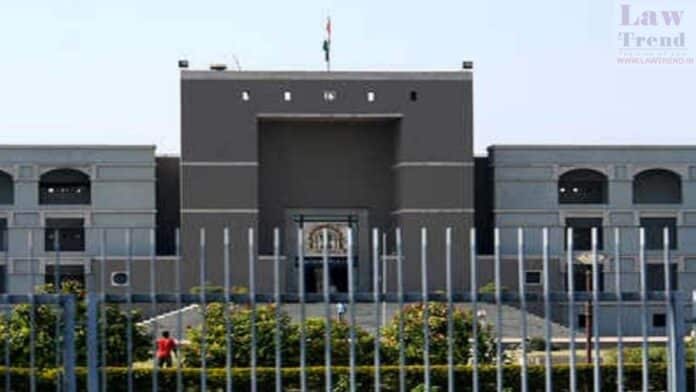The Gujarat High Court has held that individuals who claim to be victims of religious conversion can themselves face legal action if they are later found to have influenced or pressured others to convert. Justice Nirzar Desai made this observation while hearing a batch of petitions seeking quashing of FIRs filed under various provisions of the Indian Penal Code in connection with alleged religious conversion activities in Bharuch district.
Several petitioners approached the High Court contending that they were originally Hindus who had been converted to Islam by others. They argued that they were victims of conversion themselves and therefore could not be treated as accused. The petitions sought quashing of the FIR registered at Aamod Police Station, Bharuch, which named them as accused in a case involving large-scale religious conversions.
According to the FIR, around 100 individuals belonging to 37 Hindu families were allegedly converted to Islam by three accused through monetary inducements and other forms of allurement. The complainant stated that his thumb impression had been taken during the conversion process. When he resisted, he was threatened, prompting him to file the complaint. The case named nine individuals, with a total of 16 persons arraigned as accused, some of whom moved the High Court.
The High Court noted that the petitioners were not mere passive recipients of conversion but were allegedly involved in furthering conversion activities themselves. Referring to the material on record, Justice Desai observed:
“On account of their act of influencing and pressurizing and alluring other persons to convert to Islam, as can be seen from the FIR as well as statements of the witnesses, of course, those allegations are prima facie in nature for which today, upon examination of material produced, the court is of the view that conversion of the victims indicates that a prima facie offence is made out.”
The court rejected the argument that their status as “victims” automatically shielded them from criminal liability. It stated:
“Therefore, it cannot be accepted that those persons who are arraigned as accused who are originally Hindus and subsequently were converted to Islam, can be said to be the victims on account of allegations made in the FIR as well as the material collected during the course of investigation by way of charge-sheet papers.”
The petitioners are facing charges under Sections 120-B (criminal conspiracy), 153B(1)(C) (promoting enmity between different groups), and 295-A (deliberate and malicious acts intended to outrage religious feelings) of the Indian Penal Code.
In a connected matter, the court also dismissed the plea of a foreign national accused of funding conversion activities. The court observed that a prima facie case existed against him, noting:
“No relief can be granted to the applicant, more particularly, when the applicant though being a foreign national has visited India around 25 times prior to registration of offence and he is not cooperating with the investigation post registration of FIR. I do not see any reason to entertain this petition.”
The High Court refused to quash the FIRs, holding that the allegations disclosed a prima facie case against the petitioners, including those who claimed to be victims of conversion. The petitions were accordingly rejected.




